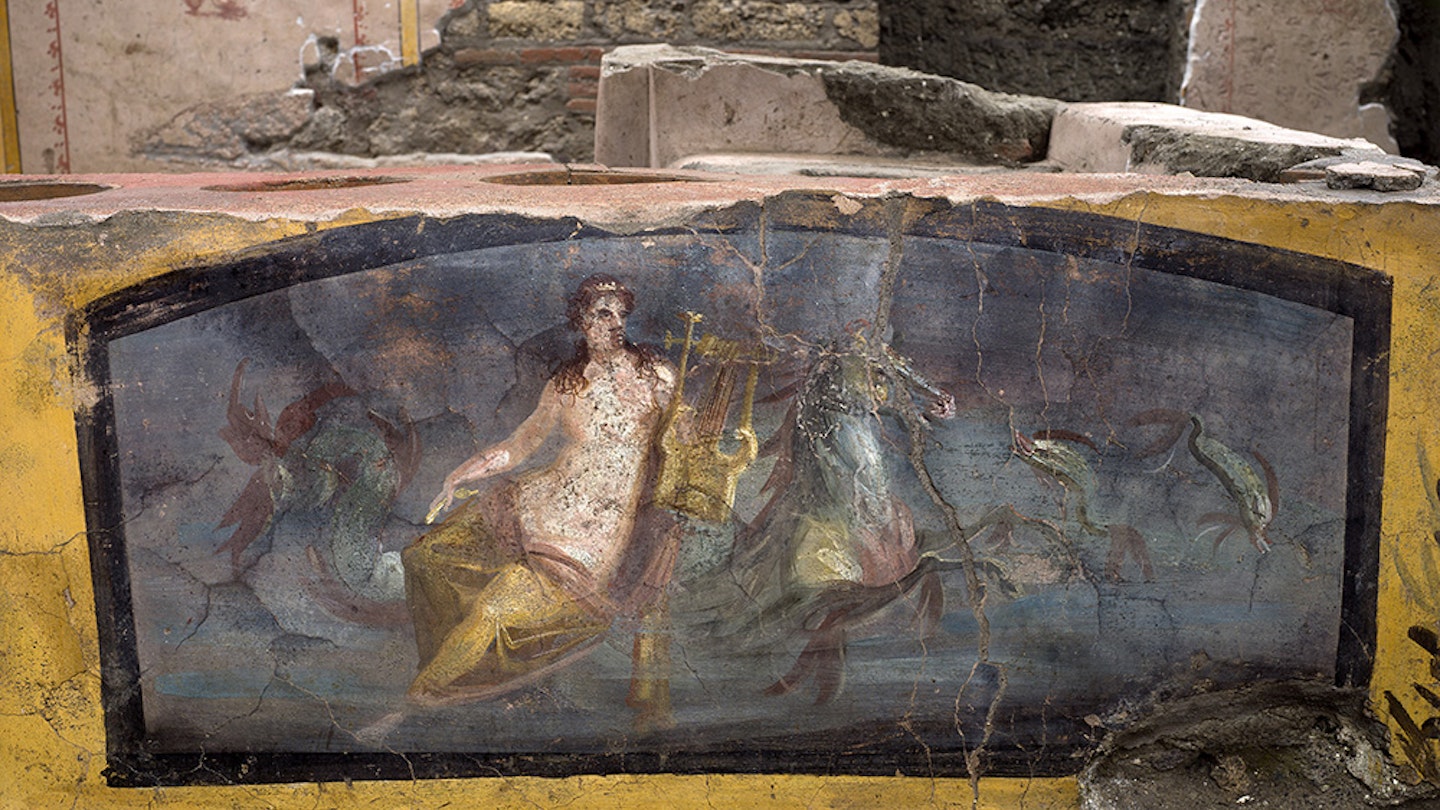The Discovery of an Ancient Snack Bar in Pompeii
The current conservation project in Pompeii has unearthed spectacular finds in recent years. The latest discovery is an incredibly well-preserved snack bar that offers insight into the dining habits of Ancient Romans.
Understanding the Thermopolium
This ancient eatery, equivalent to modern-day food stalls, served ready-made hot food and wine to Ancient Romans before it was buried under ash and lava during the volcanic eruption of 79 AD. Known as a thermopolium, these street stalls were common in Rome, with Pompeii hosting around 80 of them. The excitement around this specific thermopolium stems from its incredible preservation. Fresco art still adorns the counter’s walls, featuring scenes of gladiators in combat and an image of a Nereid riding a seahorse, along with potential menu items like mallard duck and rooster.

Diverse Menu Options
Visitors to this stall could choose from a variety of hot dishes kept warm in terracotta jars set into cylindrical holes in the counter. Menu items included duck, fish, pork, goat, and “a concoction involving snails, fish, and sheep,” which may have been a soup or stew. Archaeologists discovered traces of food residues and animal bones dating back nearly 2000 years, which aided in identifying these menu items. Additionally, an earthenware vessel containing wine and crushed fava beans was found, believed to have been used to enhance the flavors of certain dishes.

Excavation Insights
The street stall was uncovered in an area known as Regio V in Pompeii in 2019, but full excavation was completed only recently. Nearby, a cistern and water fountain were also discovered. The artifacts will be analyzed in a laboratory, focusing on the contents of the terracotta jars, thereby enhancing our understanding of the typical Ancient Roman diet. Researchers emphasize that this marks merely the beginning of an exciting journey into this significant discovery.
“As well as providing insights into daily life at Pompeii, this thermopolium presents exceptional study opportunities. For the first time, an area of this type has been excavated in its entirety, allowing for comprehensive analyses using modern technology,” said Massimo Osanna, director of Pompeii Archaeological Park.

Currently, Pompeii remains closed due to health restrictions, but this remarkable find may be available for public viewing when the park reopens at Easter.





